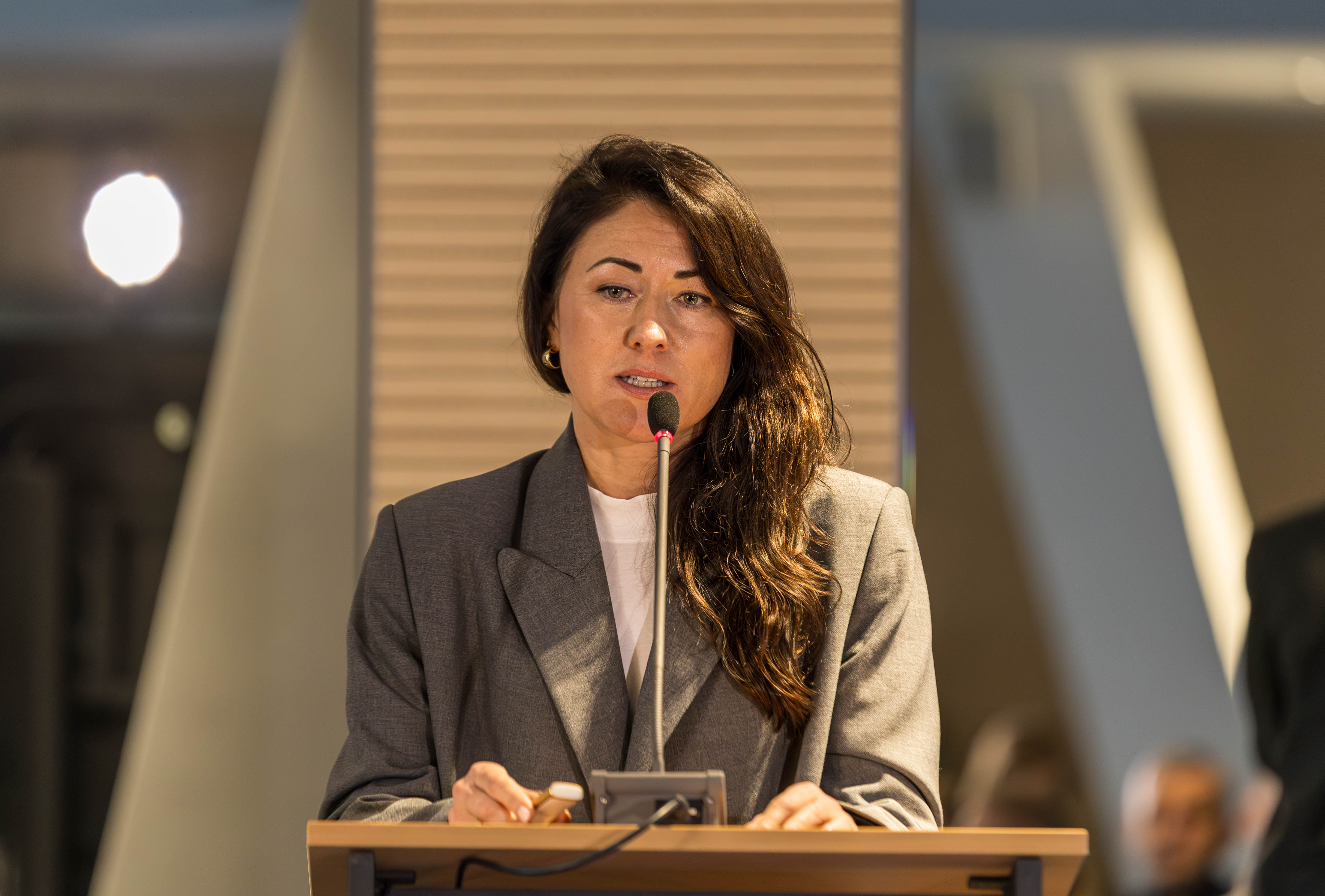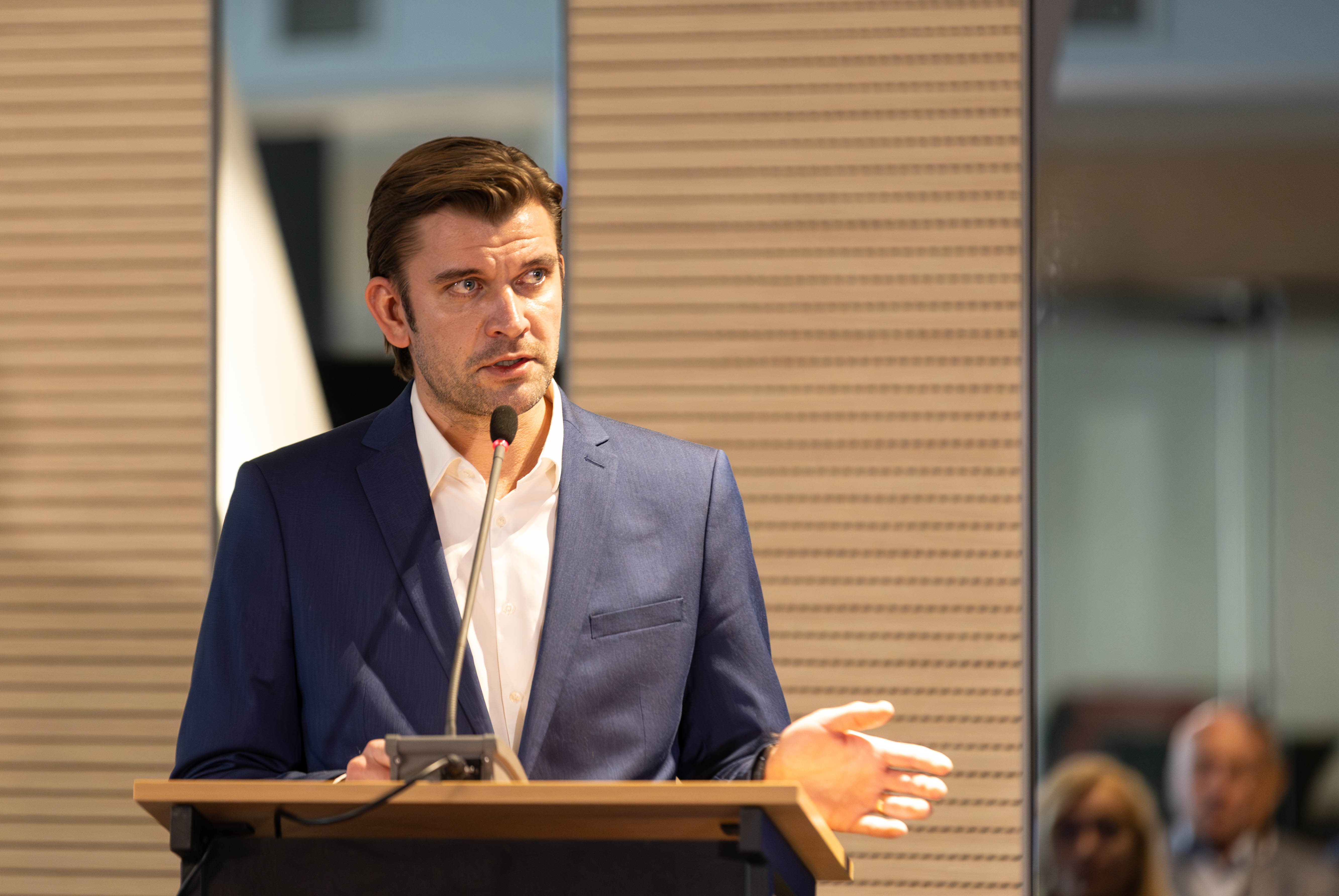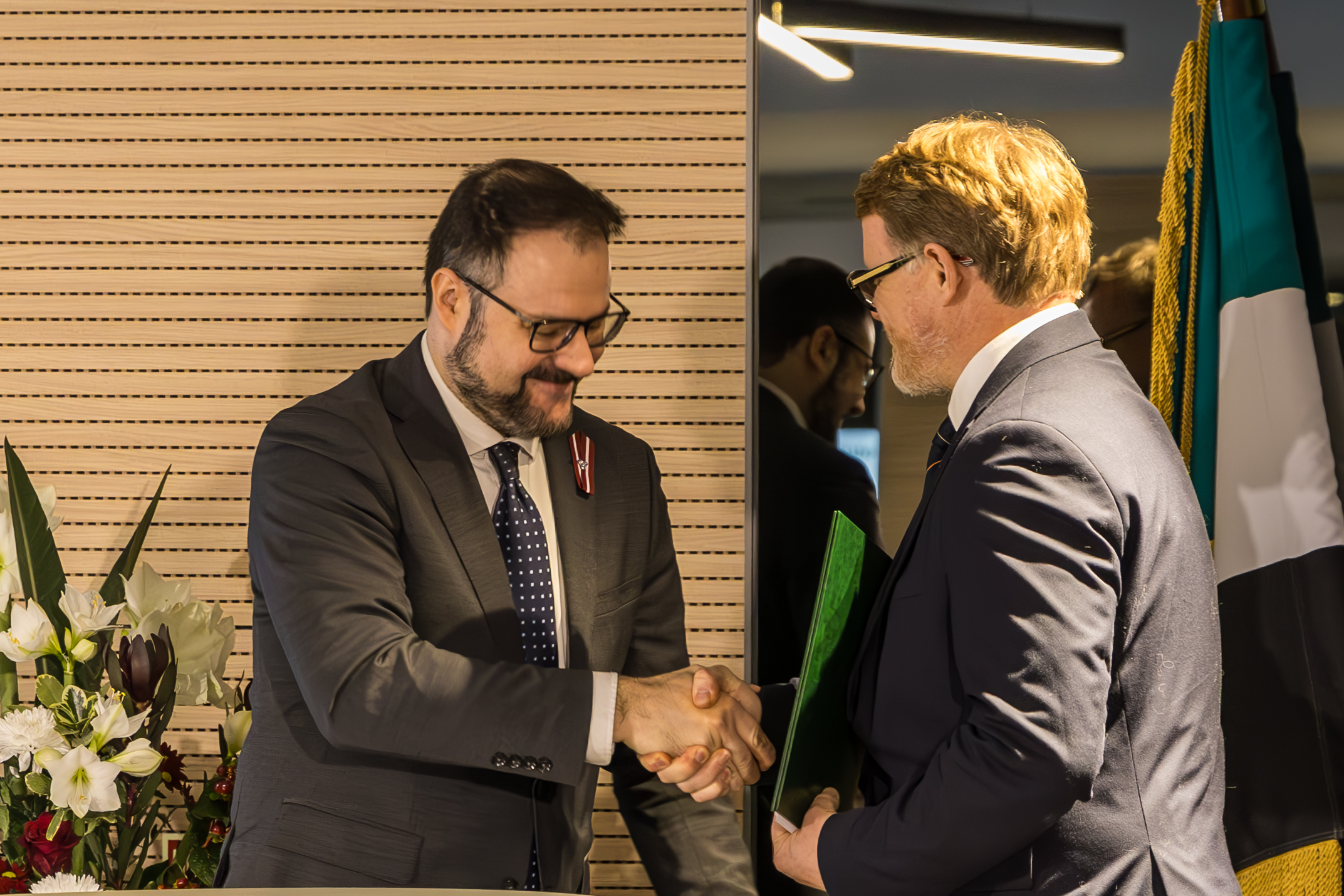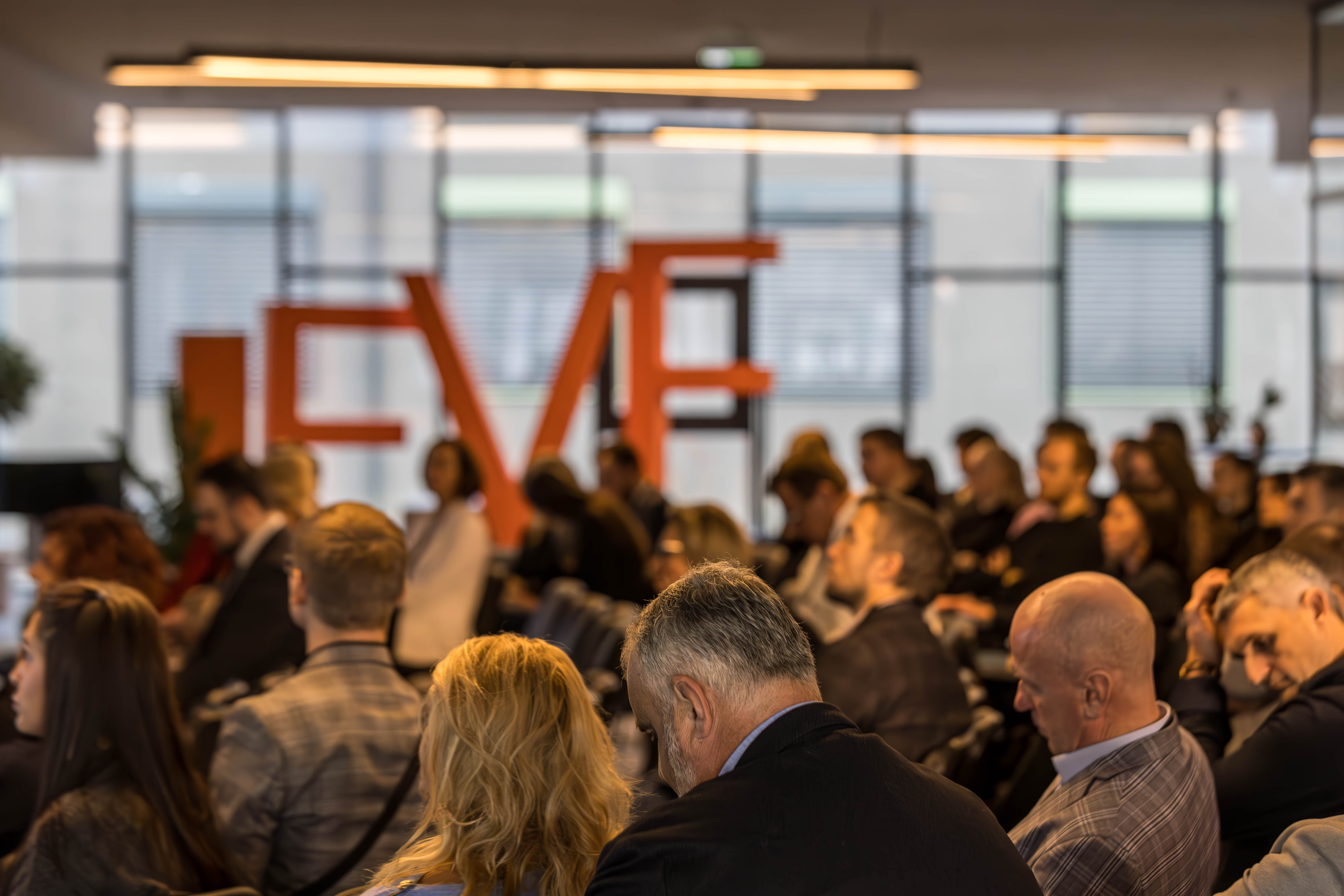The “Look at the Future of Mobility 2024” conference, held on 21 November in Riga, brought together leaders from the transport and logistics sectors, policymakers, academics, and students to discuss transformative projects like Rail Baltica and their potential impact on mobility, innovation, and civil-military logistics. With an agenda that highlighted both current achievements and future challenges, the event showcased Rail Baltica’s role as a cornerstone of sustainable transport and regional connectivity.
A special section of the conference program was dedicated to the Rail Baltica project. Ivo Vaicis, Vice Dean for Innovation at Riga Technical University (RTU), presented a study that examines the employment situation of engineers in Latvia and analyzed the skills these specialists need to support the implementation of Rail Baltica.
Ēriks Diļevs, Chairperson of the Board of Eiropas Dzelzceļa līnijas, the implementing body of Rail Baltica in Latvia, provided updates on the project’s progress in the country. He noted that by the end of this year, the construction of the Rail Baltica mainline is planned to begin in the Bauska Municipality near Iecava, within the territory of the Rail Baltica infrastructure maintenance point. He also explained the opportunities available for Latvia’s transport and construction sectors to participate in the project and become partners in implementing Rail Baltica. Companies can apply to be included in the mainline contractor ERB Rail’s supplier database at https://erbrail.com/lv/piegades-kede/.
Kitija Gruškevica, Member of the Management Board of RB Rail AS, the project’s central coordinator, emphasized Rail Baltica’s transformative significance for the Baltic region. “Building Rail Baltica is the next significant and essential step in the Baltic countries’ path toward full integration into the European Union,” she said. “It can be compared to the introduction of the euro more than a decade ago – perhaps even more impactful. Additionally, its importance has grown as it now plays a critical role as a NATO military mobility corridor.”
Gruškevica’s remarks underlined Rail Baltica’s dual role in fostering economic integration and enhancing the region’s security. These themes were explored further through discussions about ongoing construction progress, the strategic diversification of cargo flows, and the opportunities for local industries to contribute to the megaproject.
Now in its second year, “Look at the Future of Mobility” is organized by RTU’s Faculty of Engineering Economics and Management’s Governance and Safety Institute, with support from the Swedish Institute. The conference creates an environment for professionals, academics, and students to collaborate with policymakers, shaping positive change in the transport sector. By fostering dialogue, developing strategies, and sharing expertise, the event continues to contribute to the evolution of sustainable and innovative mobility solutions.




